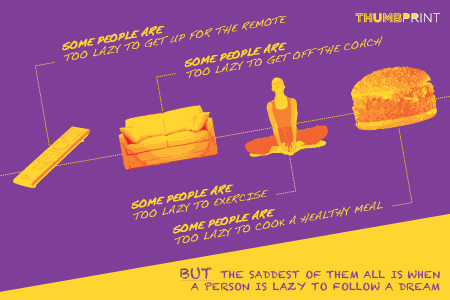Who’s never tried? This feeling that makes you feel twice as tired, that guides your thinking so that what you have to do seems much more difficult or boring. Do you dress up behind many names, such as laziness, sweetness, discouragement?For this, laziness doesn’t seem to be vague.
He’s so human that he becomes anecdotes. The discoverer of R. Koch TB bacillus was forced to write a short essay on “What is laziness” as punishment for his misconduct. Koch started working and in just two minutes handed the essay over to his teacher. The teacher, surprised, asked, “Did she take care of you too much? and Koch replied, “Three pages. “The genius had written on the first page: “Is that it?”, in the second? and in the third” Lazy. “
- Being a little more scientific (but only a little).
- Peter Axt (health science specialist at Fulda University) and his daughter wrote a book they called “The Pleasure of Laziness.
- “The hypothesis they are dealing with is that we were born with a limited amount of ‘vital energy’.
- If we exhaust it quickly.
- Exercise and get stressed.
- We’ll have an untimely death.
- If we do almost nothing.
- We can stretch it and live much longer.
- The authors illustrate their ideas about “vital energy.
- ” noting that wild animals live longer in captivity.
On the other hand, we find an interesting survey co-directed by scientist Gregory Steinberg (associate professor in the Department of Medicine at McMaster University, Canada), in which the hypothesis is that laziness has to do with the loss of two genes. worked with mice (so the conclusions must be drawn remotely) that did not have two of the genes that controlled ampK protein activity.
The AMPK protein acts when we exercise and has the function of contributing to the supply of nutrients and oxygen to muscle cells. In the study, it was shown that normal mice (who had these genes) ran spontaneously for several kilometers, while “the mice without genes”. They just walked a few yards. In the absence of these genes, these animals will have lower levels of mitochondria (the cell’s energy source) and this makes their muscles harder to absorb glucose during exercise.
Expand the study to people: when we do aerobic activity, the levels of mitochondria in the muscles increase dramatically; if we stop exercising for a while the opposite happens and the concentration of that component is reduced, so researchers conclude that if we decrease physical activity, we will decrease the levels of mitochondria in our muscles and make it increasingly difficult to exercise. In words, laziness would be nothing more than the father of laziness itself.
This corresponds to what many people have experienced in their own lives: by not doing things laziness, it seems that it is beginning to reproduce and affect actions in which it did not act before; In addition, it is also consistent with the thought that I work in circles of inertia or spirals, which states that an event or action of a nature increases the chances of another event or action of the same nature occurring.

